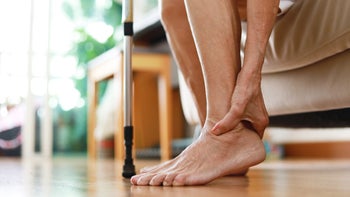
All You Need to Know About Gout and Drinking Alcohol
Key takeaways:
Drinking alcohol increases the risk of gout flares.
Beer may cause more gout flares than other types of alcohol.
Limiting alcohol intake is an important part of treating gout.
Gout is a type of arthritis. It leads to joint inflammation due to buildup of uric acid in the blood, which then deposits and forms crystals in the joints. Gout most commonly affects the big-toe joint, ankle, and knee. However, usually, only one joint is affected. The symptoms of gout are pain, redness, swelling, and heat.
Gout flares can be very painful and debilitating. The good news is that there are things you can do to decrease your risk of flares, such as limiting your alcohol intake. Read on to learn more about the connection between alcohol and gout.
How does alcohol lead to gout?
Gout is caused by a buildup of uric acid in joints. Anything that increases the amount of uric acid in your body can lead to gout flares — and alcohol is one of them.
So, what is uric acid? It’s a substance in our body that comes from something called purines. Purines naturally occur in various foods that we eat. When your body digests the purines you eat, it breaks them down into uric acid. Normally, your kidneys will then remove the uric acid from your body.
Alcohol raises uric acid levels in your body in a few ways. It can:
Be high in purines, the precursor to uric acid
Increase the breakdown of purines in the body, leading to higher levels of uric acid
Lower how fast your kidneys remove uric acid from the blood
All of these factors will increase the uric acid level in your blood, which in turn can lead to a gout flare.
Beer is worse than other types of alcohol in causing gout
While any alcohol can cause gout, beer is worse than other forms. This is because beer has more purines in it than other types of alcohol.
Other types of alcohol are not off the hook, though. Liquor has been shown to increase the risk of gout flares. The research on wine is more mixed: One study showed that wine didn’t increase the risk of gout, while other studies showed that any type of alcohol, including wine, can cause gout flare-ups.
Keep in mind that purines are found in lots of different foods, and alcohol isn’t the only cause of gout. You can still have a gout flare even if you don’t drink alcohol.
How can I prevent gout flares if I still drink alcohol?
Drinking any amount of alcohol can lead to gout flares, even if it’s just a few drinks. The more you drink, the more you increase your risk. The frequency of alcohol intake can also make a difference. More drinks in a short period of time increases your risk more than if they are spread out.
Of course, it’s best to cut back or completely avoid alcohol whenever possible. If you are worried about your ability to cut back on alcohol, consider looking into some resources that can help, or talk to your healthcare provider.
You can also consider starting medication for gout, like allopurinol. This can help prevent gout flares by stopping your body from making uric acid.
Other ways to avoid gout flares
In addition to avoiding alcohol, there are some other steps you can take to lower your risk of gout flares.
Purines are commonly found in everyday foods. But just like alcohol, some foods have more purine than others. Foods high in purines include:
Certain fish, like sardines, trout, cod, and haddock
Shellfish, like mussels, scallops, shrimp, oysters, crab, and lobster
All meats, but liver, bacon, veal, venison, and turkey all have particularly high purine levels.
There are other things you can do to decrease your risk of gout flares:
Fructose is a type of sugar that can also lead to gout flares. High-fructose corn syrup is in a lot of different foods that we eat every day. Check the ingredient lists on your food for high-fructose corn syrup.
Hydrochlorothiazide, a blood pressure medication, can lead to gout flare-ups. If you’re taking it, talk with your provider to see if there is a better option to treat your blood pressure.
Obesity can also cause gout, so weight loss can help.
The bottom line
If you have gout, there are several lifestyle changes you can make to avoid a flare. One of them is to decrease or eliminate alcohol intake. Beer seems to be the biggest offender, though any type of alcohol can cause gout. And while avoiding alcohol won’t cure your gout, you can lower your risk of gout flares by minimizing the amount of alcohol you drink.
Why trust our experts?


References
American College of Rheumatology. (2020). ACR Guideline for the management of gout.
Arthritis Foundation. (n.d.). Which foods are safe for gout?
Centers for Disease Control and Prevention. (2020). Gout.
Choi, H.K., et al. (2004). Alcohol intake and risk of incident gout in men: A prospective study. Lancet (London, England).
National Institute on Alcohol Abuse and Alcoholism. (2021). Treatment for alcohol problems: Finding and getting help.
Wang, M., et al. (2013). A meta-analysis of alcohol consumption and the risk of gout. Clinical Rheumatology.
Zhang, Y., et al. (2006). Alcohol consumption as a trigger of recurrent gout attacks. The American Journal of Medicine.



















